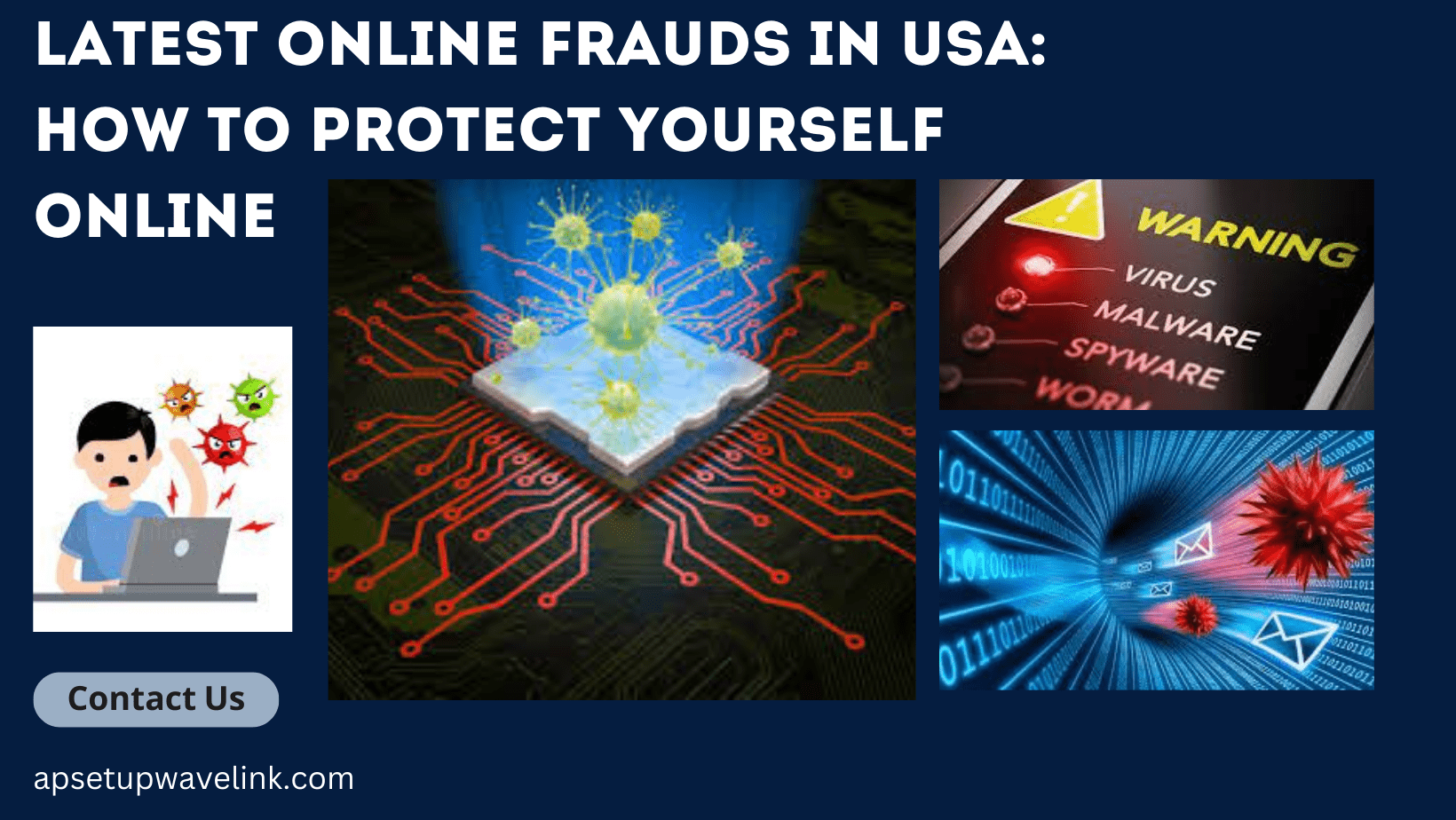In the rapidly evolving digital landscape, staying informed about the latest online frauds in USA is crucial. Here, we highlight the latest online frauds occurring in the USA:
- Fake websites and phishing emails: Scammers are creating fake websites that look like legitimate businesses in order to steal your personal information through phishing emails. They may also send phishing emails purporting to be from legitimate businesses, such as your internet service provider. These emails frequently include a link that, when clicked, takes you to a bogus website where you are prompted to enter your personal information.
- Technical support scams: Scammers may call you posing as representatives of a technical support company. They will claim that they have discovered a problem with your computer or internet service and must repair it. They will, however, ask you to pay them a fee for their services, and once you have paid them, they will disappear.
- Malware: Scammers may also attempt to infect your computer with malware. This can occur by opening an infected attachment or clicking on a malicious link in an email. Once infected, malware can steal your personal information and even take control of your computer.
Therefore here are some latest online frauds in USA that people. need not to worry we are here to provide you free guidelines.
Tips to avoid latest online frauds in USA
Here are some tips to avoid latest online frauds in usa:
- Purchase from Reputable Sources: Only buy Wi-Fi extenders from well-known and trusted retailers or directly from the manufacturer.
- Secure Websites: Ensure that the website where you are making a purchase is secure. Look for “https://” in the URL, and check for a padlock icon in the address bar.
- Research the Product: Before making a purchase, research the specific Wi-Fi extender model you are interested in. Examine reputable reviews and customer feedback.
- Check the Seller’s Reputation: If you’re buying from a third-party seller on a platform like Amazon or eBay, check the seller’s ratings and reviews.
- Use Trusted Payment Methods: When making online purchases, use secure and reputable payment methods. Avoid wire transfers or payment methods that don’t offer buyer protection.
- Keep Software Updated: Ensure that your computer and devices have the latest security updates and antivirus software to protect against malware and phishing attempts.
By following these tips you can prevent yourself from being the victim of latest online frauds in USA
Read More
- wireless security camera
- coredy E300 wifi range extender setup
- Wifi extenders for gaming
- victony Wa305 extender setup
Q: How can I recognize a phishing attempt in my emails?
A: Look out for misspellings, unfamiliar sender addresses, and urgent language demanding immediate action.
Q: What steps can I take to secure my online accounts?
A: Enable two-factor authentication, use strong and unique passwords, and regularly monitor account activities.
Q: Are antivirus programs sufficient to protect against malware?
A: While essential, antivirus programs should be complemented with regular updates, secure browsing habits, and cautious downloading.
Q: What measures can one take after falling victim to identity theft?
A: Immediately contact relevant authorities, freeze credit reports, and monitor accounts for any suspicious activities.
Q: How prevalent are cryptocurrency scams, and how can I avoid them?
A: Cryptocurrency scams are on the rise. Exercise caution, verify transactions, and stay informed about potential threats.
Q: Are there specific signs of e-commerce scams that I should be aware of?
A: Watch for unsecured websites, deals that seem too good to be true, and unfamiliar payment methods
Also read: Netgear extender not accepting password
